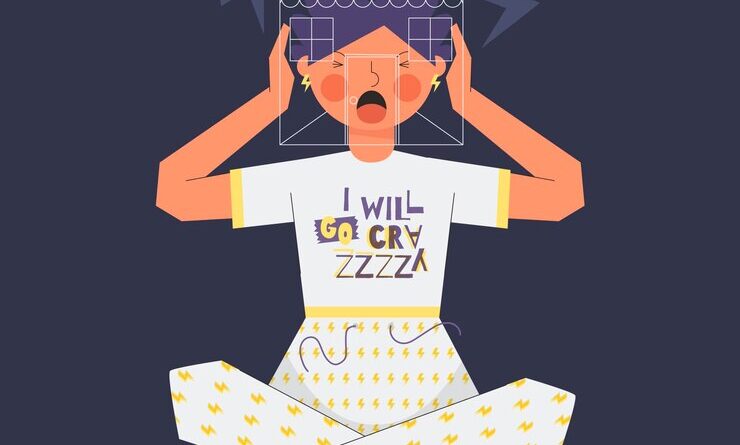Tic Disorder in Adults: Effects and Help Options
Tic disorders, characterised by sudden, involuntary movements or sounds, are often associated with children. However, many adults also experience these conditions, which can profoundly affect their daily lives. While tic disorders typically begin in childhood, they can persist into adulthood and may even evolve over time.
What is a Tic Disorder?
A tic disorder is a neurological condition involving repetitive, involuntary movements (motor tics) or sounds (vocal tics). These tics can range from simple actions, such as blinking or throat clearing, to more complex movements, such as head jerking or jumping. The two most common types of tic disorders are:
- Chronic Motor or Vocal Tic Disorder: Involves persistent tics lasting more than a year.
- Tourette Syndrome (TS): A more severe form of tic disorder, TS is marked by both motor and vocal tics that persist for over a year.
In adulthood, tic disorders are less frequently diagnosed, yet they have a significant impact on the person’s emotional, social, and professional lives. Adults with tic disorders may experience embarrassment, shame, or anxiety about their symptoms, leading them to avoid social interactions or situations that may trigger tics.
Impact of Tic Disorders in Adults
While tic disorders are commonly diagnosed in childhood, many people with TS or chronic tics carry their symptoms into adulthood.
- Social Impact: Adults with tic disorders may feel self-conscious about their symptoms, particularly in social settings. They may worry about how others perceive them, leading to social isolation and even depression.
- Professional Challenges: Tic disorders can affect one’s ability to perform at work. In jobs that require public speaking, high interaction, or professional presentations, tics may become more pronounced, potentially causing embarrassment and difficulty in keeping a professional demeanor.
- Emotional Strain: The constant struggle with involuntary movements or sounds can lead to significant emotional distress. Many adults report feeling frustrated or helpless in managing their symptoms, which may worsen anxiety or depressive symptoms.
- Sleep Disruptions: In some cases, individuals with tic disorders have sleep disturbance due to heightened anxiety or the physical nature of their tics.
Treatment for Tic Disorders
Addressing tic disorders in adults requires an understanding of both the physical and psychological components. Treatment is often personalised, with multiple approaches working together to reduce symptoms and improve quality of life. The treatment options include:
- Behavioral Therapy: Cognitive-behavioral therapy (CBT) is an effective intervention for managing tic disorders. One specific form, Habit Reversal Training (HRT), teaches individuals how to recognise the urge to tic and replace it with a less noticeable behaviour. This therapy has shown success in helping adults manage their symptoms.
- Medications: Several medications can be used to help manage the severity of tics. These may include antipsychotics (e.g., haloperidol) or alpha-adrenergic agonists (e.g., clonidine). Medications are often prescribed when tics are disruptive to daily life, and they are typically used in conjunction with behavioral therapy.
- Relaxation Techniques: Techniques such as mindfulness, meditation, and deep breathing exercises can help reduce anxiety, which may, in turn, lessen the frequency of tics. Managing stress effectively plays a key role in controlling the symptoms of tic disorders.
- Support Groups and Peer Support: Adults with tic disorders may benefit from joining support groups or seeking counselling with others who understand their experiences. Exchanging insights, addressing challenges, and discovering coping strategies can cultivate a sense of support and diminish feelings of isolation.
Psychowellness Center Experts
At the Psychowellness Center, a multidisciplinary team of experts works together to provide comprehensive care for individuals dealing with tic disorders. Here’s how different professionals contribute:
- RK Suri is an experienced clinical psychologist with extensive expertise in evidence-based therapies. He is highly regarded for his work in diagnosing and treating complex personality disorders. Dr. Suri specialises in guiding clients toward emotional regulation and enhancing their self-awareness, enabling them to better manage their mental health and well-being.
- Kala Sengupta plays a key role in helping adults with tic disorders through Cognitive Behavioral Therapy (CBT). She works to identify thought patterns that trigger stress or tics, helping patients develop healthier coping mechanisms.
- Utkarsh Yadav assists in addressing the emotional and social implications of living with tic disorders. His sessions focus on building self-esteem, managing anxiety, and offering tools for social interactions that help clients feel more confident in public spaces.
- Sakshi Dhankhar specialises in Habit Reversal Training (HRT), which helps individuals with tic disorders replace unwanted tics with more socially acceptable behaviours. She works closely with clients to check progress and make adjustments as necessary.
- Mansi offers personalised strategies for coping with tics in academic and work environments. She helps individuals develop skills to focus and manage workplace stress while accommodating their tic symptoms.
- Drishti Gakhar provides mindfulness-based interventions to help patients with tic disorders manage anxiety and stress. These techniques have been shown to reduce the frequency of tics, especially when stress is a triggering factor.
- Riya Rathi works on improving motor skills and physical coordination in individuals with tic disorders. Her approach includes exercises that can help manage the physical impact of tics and increase overall coordination and self-regulation.
- Srishti Jain focuses on understanding the cognitive and neurological aspects of tic disorders. She evaluates how tics affect concentration and cognitive processing, providing strategies to improve focus and attention.
- Tanu Sangwan offers therapy for individuals struggling with the psychological impact of tic disorders. She focuses on building self-compassion, reducing self-criticism, and helping individuals better manage the emotional challenges of living with tics.
Conclusion
Tic disorders in adults can be challenging, but with the right treatment approach, individuals can lead fulfilling lives. A combination of behavioral therapy, medications, relaxation techniques, and professional top psychologists support can make a significant difference in managing the symptoms. Experts at the Psychowellness Center like Dr. RK Suri, Dr. Kala Sengupta, and others provide a comprehensive support system to help adults with tic disorders navigate their challenges and regain control of their lives.
References:
- American Psychiatric Association. (2013). Diagnostic and Statistical Manual of Mental Disorders (5th ed.).
- Lea, R., & Bachmann, A. (2015). Tic Disorders in Adults: Pathophysiology and Treatment. Psychiatric Clinics of North America.
Van de Goor, I. M., & Keijsers, G. P. (2020). Cognitive Behavioral Therapy for Tic Disorders in Adults: Evidence and Application. Journal of Clinical Psychology.




